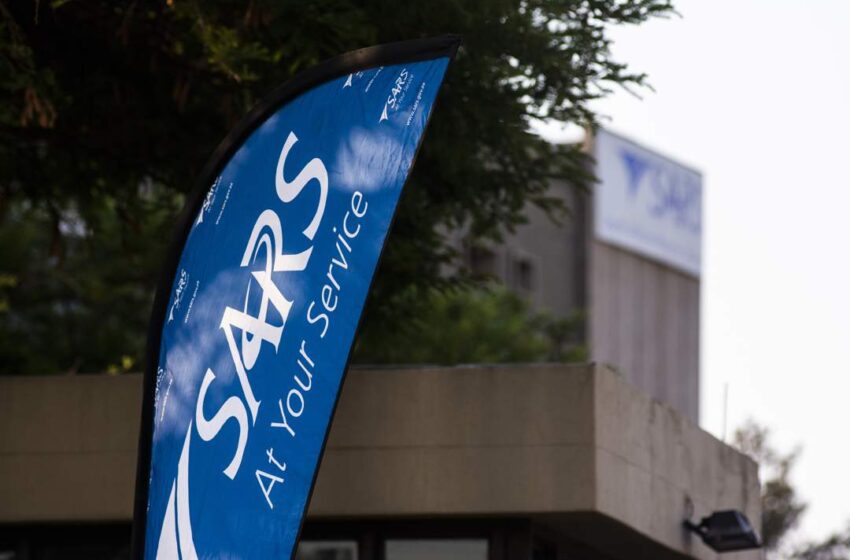Categories of taxpayers excluded from SARS auto-assessment 2025 — and why
- Top Stories
crispng
- July 7, 2025
- 1357

SARS answers top tax questions for 2025 season in new FAQ guide for South Africans. Photo credit: Waldo Sweigers/Bloomberg via Getty Images
While SARS’s auto-assessment process has made filing easier for millions of South Africans in 2025, it doesn’t apply to everyone. Aimed at taxpayers with simple and straightforward financial affairs, the system automatically generates pre-filled returns using third-party data. But for many, the complexities of their income sources or deductions make them ineligible. Here’s a breakdown of the categories of people excluded from the auto-assessment system—and why manual filing remains necessary for them.
1. Freelancers and Self-Employed Individuals Are Excluded
People who earn income outside traditional employment—such as freelancers, consultants, gig workers, and the self-employed—are not eligible for auto-assessment. This is because SARS does not automatically receive verified third-party data for such income. These individuals are expected to report their income and expenses themselves using the ITR12 form.
Inconsistent earnings, multiple clients, and business-related deductions like travel, office expenses, and equipment purchases require personalised declarations and supporting documentation, which SARS cannot pre-fill or assume.
2. Rental Property Owners Must File Manually
South Africans earning rental income from letting out property must file tax returns manually. SARS does not receive automatic breakdowns of rental income, property-related expenses (like rates, levies, repairs, and mortgage interest), or depreciation claims. The taxpayer is responsible for calculating their net rental income and supplying the relevant documents.
Because of this complexity—and the high potential for underreporting or miscalculation—SARS excludes landlords from auto-assessments.
3. Business Owners and Sole Proprietors Are Not Included
Individuals who run small businesses or operate as sole proprietors are also excluded from the auto-assessment system. Their income structures often include turnover, cost of sales, operational expenses, and tax-deductible investments. Such financial details are not submitted to SARS by third parties, making automated assessment impossible.
Manual filing is needed to reflect true business performance, claim appropriate deductions, and ensure compliance with both income tax and VAT (if applicable).
4. People with Foreign Income or Offshore Investments
Taxpayers with income from foreign employment, offshore dividends, pensions, or property outside South Africa are automatically excluded from the SARS auto-assessment system. This is because SARS does not receive third-party data from foreign institutions, and the tax implications of global income often involve foreign tax credits, exchange rate calculations, and international treaties.
Such individuals are required to manually declare their global earnings and provide supporting documentation to avoid double taxation and ensure compliance.
5. Provisional Taxpayers with Complex Profiles
While SARS has begun auto-assessing a limited group of provisional taxpayers in 2025, most are still excluded. This includes people with multiple income streams, irregular earnings, or complex deductions like investment losses, retirement annuity top-ups, or capital gains tax from asset disposals.
Provisional taxpayers are expected to submit two IRP6 returns per year and one ITR12 annually, making full auto-assessment unsuitable for their dynamic financial profiles.
6. Trusts and Estates Must File Manually
Trusts, including testamentary and inter vivos trusts, and deceased estates are automatically excluded from auto-assessment. These entities have specialised tax obligations, including distributions to beneficiaries, capital gains considerations, and administrative costs.
Filing for trusts requires careful management of income allocations, deductions, and legal compliance—well beyond the scope of automated tax tools.
7. High Net Worth Individuals and Those with Capital Gains
Individuals who sell shares, properties, or other capital assets during the tax year are generally excluded from auto-assessment. This is because capital gains tax (CGT) must be calculated based on acquisition cost, selling price, improvement costs, and other variables that SARS cannot verify through third-party data.
High net worth individuals with complex investment portfolios often also have foreign holdings, offshore trusts, or dividend streams—all requiring detailed manual submissions.
READ ALSO
SARS 2025 auto-assessment: Step-by-step guide to navigate the process
SARS 2025 auto-assessment: Step-by-step guide to navigate the process
SARS introduces new changes ahead of 2025 tax season… all you should know
8. Taxpayers With Discrepancies in Third-Party Data
Even if you fall within the eligible income bracket, you may still be excluded from the auto-assessment process if SARS detects inconsistencies or omissions in your third-party data. For example, if your employer fails to submit your IRP5 correctly, or your bank interest appears inflated, SARS will flag your profile for manual filing.
In such cases, SARS prefers that you (or a tax practitioner) resolve the discrepancies by submitting a full tax return supported by accurate documentation.
Why SARS Excludes These Categories from Auto-Assessment
The SARS auto-assessment system is built on automated data verification and simplicity. It depends on accurate third-party submissions, fixed-income profiles, and standardised deductions. For individuals with more dynamic or complex tax obligations, automation increases the risk of under-assessment, non-compliance, or overpayment.
By excluding high-risk or complex profiles, SARS maintains the integrity of the tax system while reducing the risk of audits, penalties, and disputes. The manual process, while more involved, offers these taxpayers a better opportunity to claim deductions, explain irregularities, and comply fully with South African tax laws.Know Where You Stand
Auto-assessment may be a time-saving tool for many South Africans, but it’s not one-size-fits-all. If you fall into any of the excluded categories, it’s crucial to file your return manually, on time, and with complete information. The cost of failing to do so can include steep penalties, interest, and even criminal liability in cases of evasion.
If in doubt, consult a registered tax practitioner who can help you understand your obligations and submit an accurate return. SARS may be going digital, but when it comes to complex financial situations, human attention still matters.

